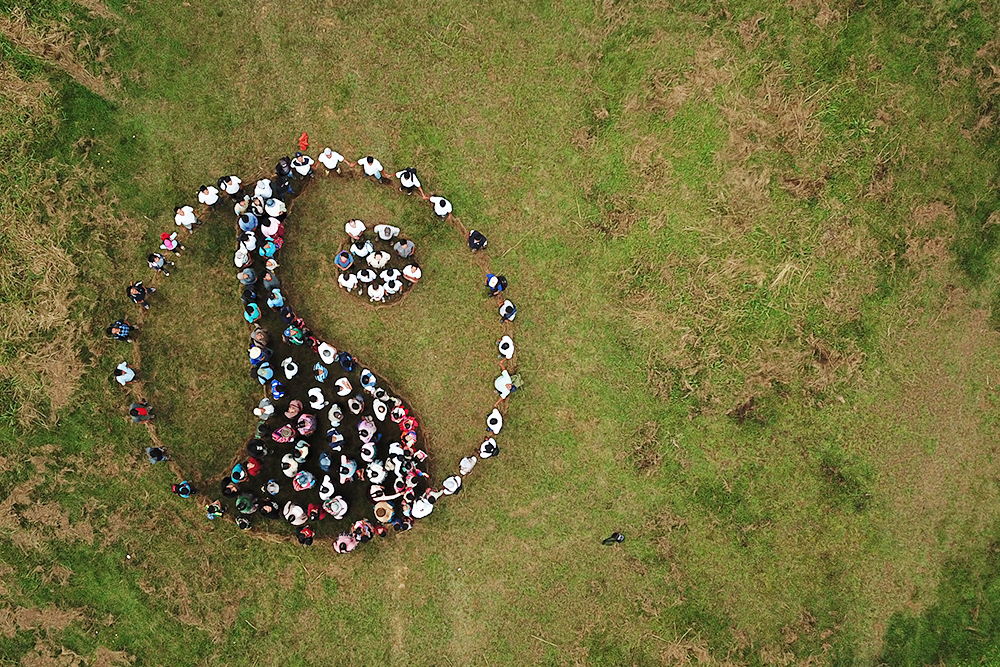It all started with the coffee crisis
Twenty-five years ago a collapse in world coffee prices was having a devastating impact on smallholder coffee farmers around the globe – they were earning less than the cost of growing their coffee. The farmers, situated in the “coffee belt”, the narrow band of land that coffee grows in, faced unprecedented hardship for themselves and their families.
A group of concerned organisations including Oxfam, The Women’s Institute, CAFOD, Christian Aid, and Traidcraft banded together and formed the Fairtrade Foundation to tackle the crisis.
The Fairtrade Minimum Price was introduced – a safety net that kicks in when the market price falls below a sustainable level. This meant that farmers in the Fairtrade system would receive at least the cost of production for their coffee even when the market price had crashed. When the market price rose above the Fairtrade Minimum, the farmers received the market price alongside other non-Fairtrade farmers.
In addition, the Fairtrade Premium was introduced. This is an extra amount of money that is paid to the farmer co-operative on top of the sale price. (Smallholder farmers group into co-operatives where they are better able to share costs, knowledge and skills.) The co-operative decides democratically how to spend the Premium, whether on community projects or improvements to their farms. Over the years, Premium projects have included maternity hospitals, schools, improvements to roads, reforestation projects and training programmes.
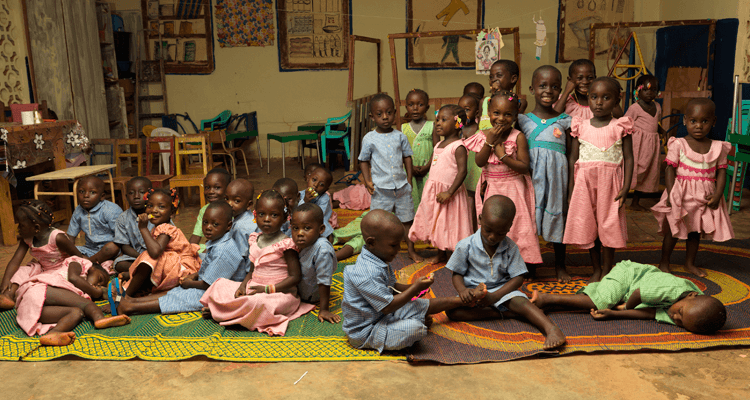
A network of dedicated supporters
From the moment the first Fairtrade product, Green & Black’s Maya Gold chocolate bar, hit the shelves in 1994, British shoppers took Fairtrade to their hearts, supporting the movement by buying and asking for Fairtrade products. Across the UK local Fairtrade groups sprung up as activists set up and set out their stalls at fêtes, in churches and elsewhere, spreading the word and asking local businesses to go Fairtrade.
By 1997, there were many more products available and Fairtrade had grown from a niche mark to a widely recognised label, encouraging ethical consumption and ethical debate across the country. MPs Glenda Jackson, Simon Hughes and Peter Bottomley tabled an Early Day motion that resulted in Fairtrade coffee being served throughout Parliament. Fairtrade was pushing ethical consumption into the mainstream.
Today, Fairtrade products continue to roll out across stores in the UK, as more companies and consumers embrace the change and support the farmers who grow our food.
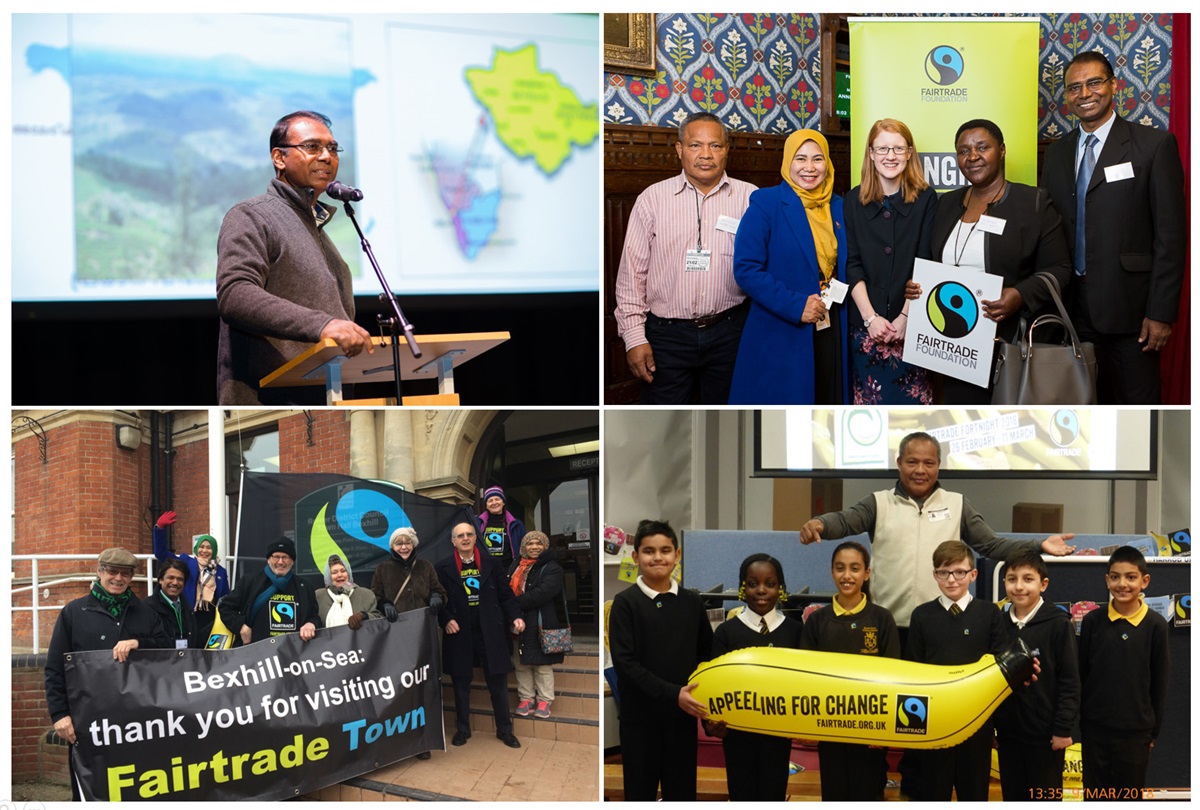
But what difference has this made to the farmers?
Over the past 25 years, we estimate that Fairtrade globally has generated just over 1 billion Euros in Fairtrade Premium. This has a significant impact on the standard of living of farmers and farming communities.
In 2015–16, small farmer organisations chose to invest their Fairtrade Premium primarily in training, tools and credit, as well as direct payments to members to subsidise income. They also invested in developing and strengthening their businesses – crucial for increasing capacity, ensuring better quality, and adding value to their crop, all of which in turn support better returns for members.
During that same period, around 20 percent of the Fairtrade Premium received by plantations was used for wider community projects, such as supporting local schools or health services.
In Kenya, since the Premium was introduced more than 6,000 children of families working in flower farms have benefited. In 2018, Fairtrade Africa launched the Fairtrade Africa Alumini Association to share success stories from a generation of young people who have benefited from Fairtrade bursaries which paid school fees that could not otherwise have been afforded.

A comprehensive review on Fairtrade, conducted by the Overseas Development Institute, revealed findings about the impact Fairtrade has, including:
- Fairtrade certified producers benefit from higher prices than non-Fairtrade certified producers during periods of low conventional market prices, thanks to the Fairtrade Minimum Price
- The Fairtrade Premium supports the development of producer organisations and enables wider community level benefits, such as health and education services
- Fairtrade certification contributes to the strengthening of producer and worker organisation and democracy
- Fairtrade’s impact on household income and well-being is generally positive, although this depends on many factors.
- More schooling for children in households of certified versus uncertified producers
(Ref: ODI Meta Review (2017)
Fairtrade farmers speak of the impact of Fairtrade
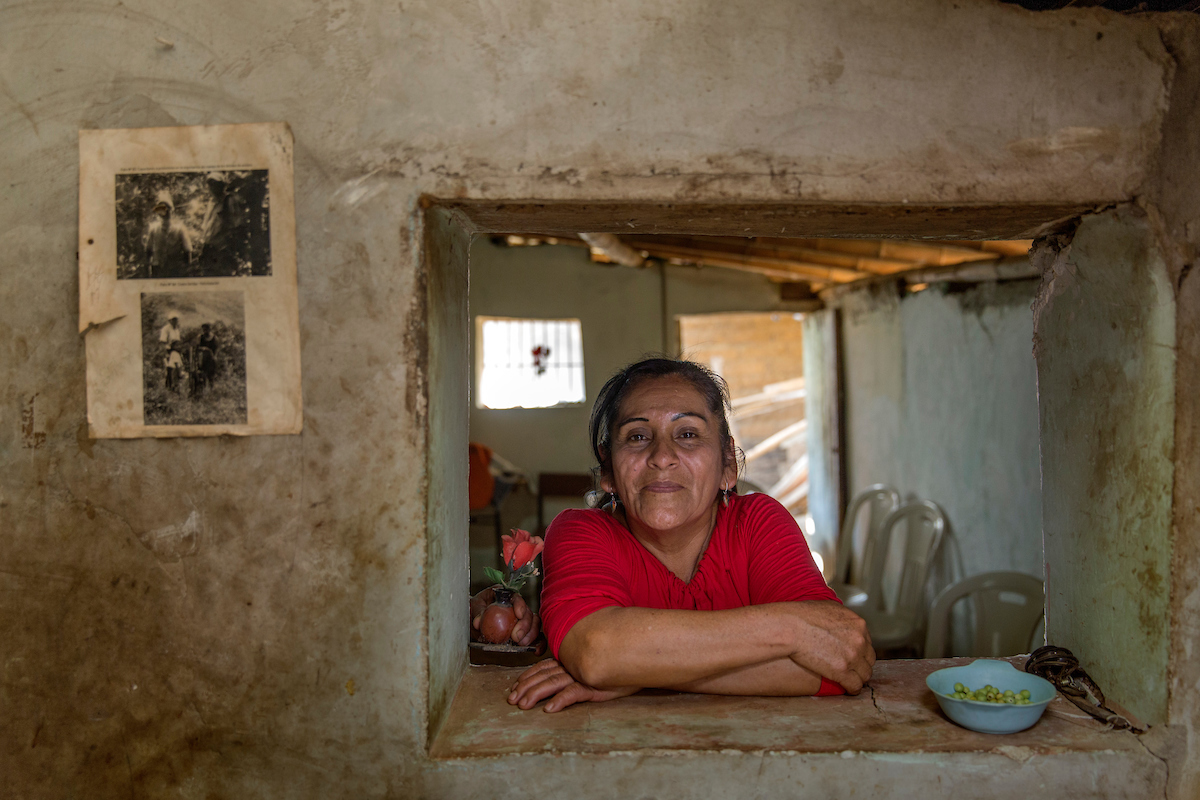
Adelaida Correa Bermeo is a coffee farmer from the Norandino co-operative in Peru, which has been part of the Fairtrade system almost since the start, 25 years ago. Earlier this year she said;
“For me as a farmer, Fairtrade has given many opportunities, it has supported women greatly with all the projects to help us move forward, to bring us to the fore, because we knew nothing, and they gave us training, they came and gave talks about what we could do, they would come and say to us; “we are going to give you a project so that you (women) can then start others”.”
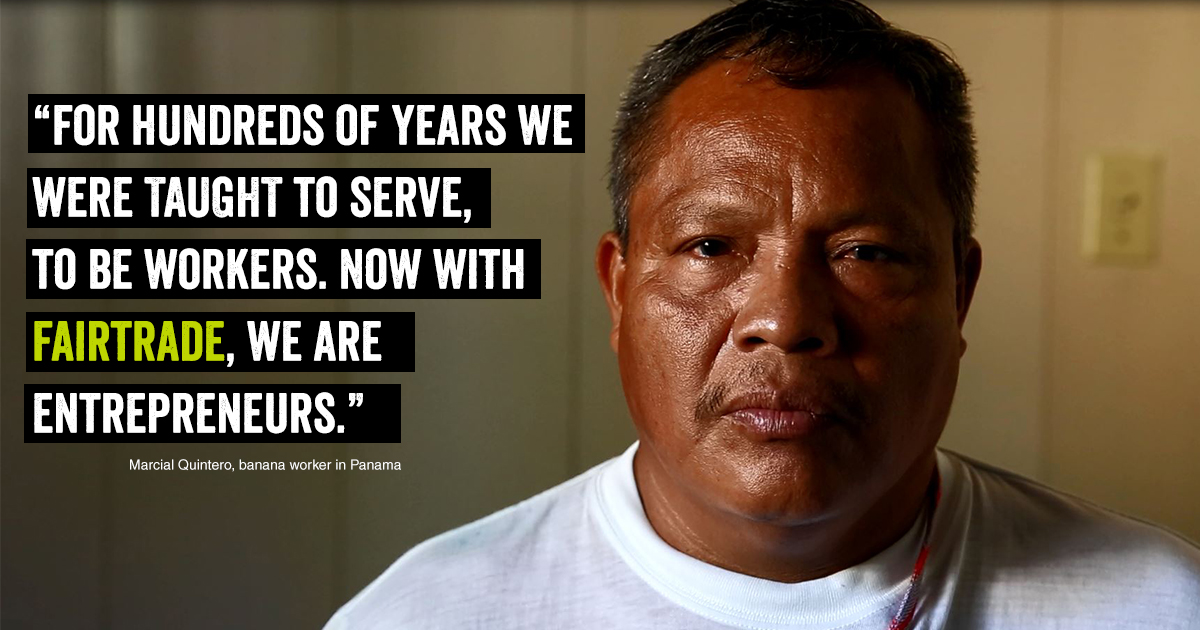
Marcial Quintero, a member of Coobana, a Fairtrade banana co-operative in Panama said, “Before joining Fairtrade we didn’t see any benefits, development or profit. The price we used to receive per box wasn’t enough to cover our costs – and for 17 years the price didn’t change. Since starting with Fairtrade it’s been a revolution in our lives… For hundreds of years we were taught to serve, to be workers. Now with Fairtrade, we are entrepreneurs.”
> Hear more Fairtrade farmers speak about the impact they’ve experienced
At the end of 2016 there were 1,411 Fairtrade certified producer organisations in 73 countries.
The number of farmers and workers participating in Fairtrade grew to over 1.66 million.
We estimate that over the last 25 years the number of farmers and workers who have benefitted from Fairtrade has quadrupled. If, with everyone’s help, if we continue to grow at this rate, we estimate the number will quadruple again to approximately 8 million. That would be an incredible achievement.
Fairtrade continues to fight for change
Fairtrade’s vision is a world in which all producers can enjoy secure and sustainable livelihoods, fulfil their potential and decide on their future. As we move into the next stage of our journey, we are calling for:
An end to poverty and a dignified life for all farmers and workers
We need fair prices and decent work, a living income and wage, plus investment in essentials like education, health and housing.
Empowerment and equality
We need a world of work that promotes greater equality, including gender equality, which leaves no one behind and empowers farmers and workers to have their say.
Support to fight climate change
Locally, this means supporting Fairtrade farmers to adapt to a changing climate, for example on reforestation and water usage. Globally, we need a radical rethink of how we consume.
Action on exploitation and human rights
We need zero tolerance of human rights abuses in supply chains, including child labour and modern slavery, and more accountability.
At the start of 2019, Fairtrade launched a three-year campaign to achieve a living income for farmers. A living income means enough money to live a dignified life, paying for essentials such as clothing, medicine and school. We believe this is not a luxury but a human right. The goal is a Living Income by 2030 – an achievable aim but one Fairtrade can’t achieve in isolation – we need companies, governments and shoppers to come together to do the right thing.
Whatever happens, Fairtrade will continue to fight for the best deal it can for the farmers and workers on whom we rely. Fight poverty, buy Fairtrade for now and the next 25 years.
Be a part of our mission:
Follow us on social media:
- Connect with us on Facebook | Follow us on Instagram
- Follow us on Twitter | Follow us on LinkedIn
- Subscribe to our YouTube channel
See how else you can get involved:
